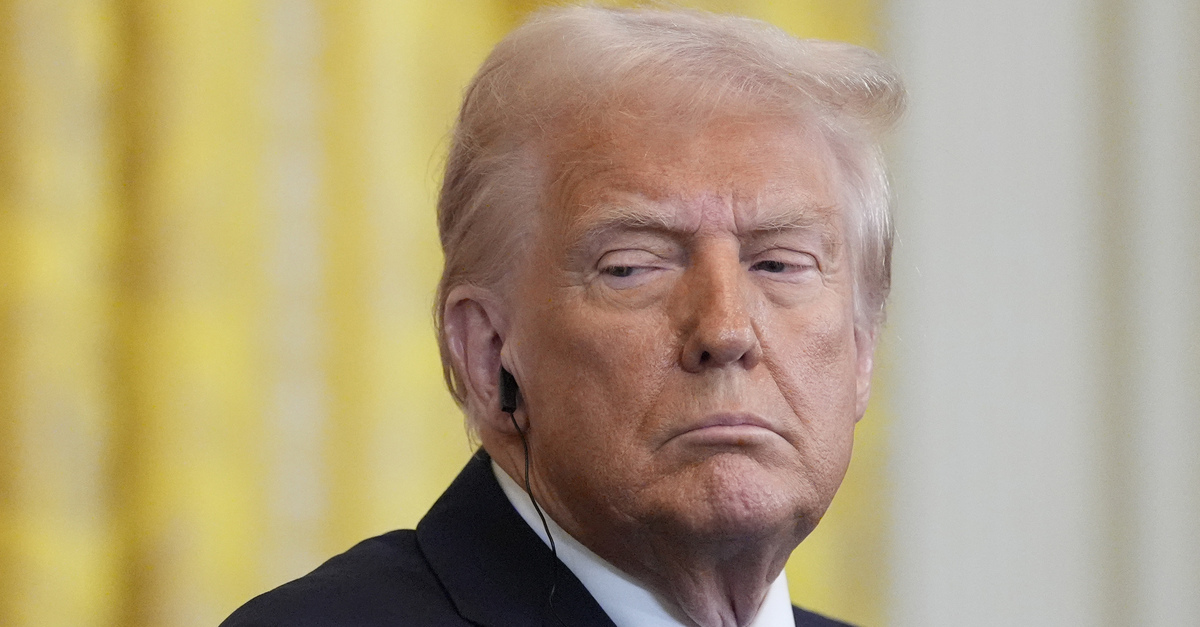A federal judge in Maryland rejected the Trump administration’s request to partially lift the court’s nationwide injunction enjoining the federal government from enforcing or implementing Donald Trump’s executive order purporting to end birthright citizenship.
The administration sought to have the court’s universal application of the injunction narrowed so that it only provided relief to the individual plaintiffs and members of the organizations who filed the lawsuit last month while the U.S. Court of Appeals for the Fourth Circuit reviews the injunction. In other words, the government wanted the birthright citizenship order to apply to everyone except those individuals specifically involved in the lawsuit... Continue reading here ▶
Baltimore-based U.S. District Judge Deborah L. Boardman on Tuesday issued a five-page order denying Trump’s request for the “stay pending appeal,” asserting that the administration is likely to lose the case because the executive order in question seeks to “overrule the Constitution ‘by executive fiat.’”
Boardman reasoned that the nationwide injunction was “necessary because the Executive Order is a ‘categorical policy’ that addresses the citizenship status of people born anywhere in the United States.” Such enforcement would effectively create a tiered citizenship system in the U.S., if only temporarily.
“Were the Court to limit the injunction to the plaintiffs and the members of the plaintiff organizations, a person’s citizenship status during the pendency of this case would depend on their parents’ decision to bring this lawsuit or their parents’ membership in one of two voluntary, private organizations,” Boardman wrote. “That would make no sense. Citizenship rules should be uniform and consistent across the country. Uniformity and consistency can be ensured only through a nationwide injunction.”
Trump signed the controversial executive order on his first day in office directing the secretary of state, attorney general, secretary of homeland security, and social security commissioner to cease recognizing citizenship for children whose parents are in the U.S. illegally or in the country on a legal but temporary basis.
The order was met with a flurry of lawsuits from individuals, organizations, and Democratic states, all of which asserted that the order was unconstitutional and contradicted more than 100 years of Supreme Court precedent.
Among those challenging the administration, five pregnant women and two immigrant advocacy groups filed the lawsuit, which condemned the order as a “flagrant violation” of the 14th Amendment and citizenship clause of the Constitution, which they assert “guarantee the fundamental right to citizenship for all children born in the United States.”
Boardman issued the first nationwide injunction blocking Trump’s order and was quickly followed by Seattle-based Judge John Coughenour issuing his own injunction.
The administration has repeatedly argued that widely-held views of the 14th Amendment granting jus soli (“right of the soil”) citizenship and a landmark 1898 Supreme Court case have been misinterpreted for over 100 years. In fact, the administration’s position is that Trump’s executive order merely enforces already existing law, specifically highlighting the phrase “subject to the jurisdiction thereof” contained in the Constitution.
The government earlier this month argued the following:
As was apparent from the time of its enactment, the Citizenship Clause’s use of the phrase “subjection to the jurisdiction” of the United States contemplates something more than being subject to this country’s regulatory power. It conveys that persons must be “completely subject to [the] political jurisdiction” of the United States, i.e., that they have a “direct and immediate allegiance” to this country, unqualified by an allegiance to any other foreign power. Just as that does not hold for diplomats or occupying enemies, it similarly does not hold for foreigners admitted temporarily or individuals here illegally.
In addition to seeking a partial lift of the court’s injunction, the administration asked Boardman to modify her order so it only enjoined enforcement of the citizenship measure, not “implementation,” meaning the government could begin taking “internal, preparatory steps regarding the EO’s application and formulate relevant policies and guidance.” Boardman denied this request as well.
“The Court has found that the plaintiffs established a strong likelihood of success on the merits of their claim that the Executive Order violates the Fourteenth Amendment to the Constitution,” she wrote. “Surely, the government has no valid interest in taking internal, preparatory steps to formulate policies and guidance on an unconstitutional Executive Order.”
Boardman closed with a sharp rebuke of the administration, saying it had not made a “strong showing” it was likely to succeed on the merits of the appeal or the overall case.
She wrote (citations omitted):
The defendants also have not shown that they will be irreparably injured without a partial stay. They claim that “any injunction that prevents the President from exercising his core authorities is ‘itself an irreparable injury.’” The President certainly has the core authority to issue Executive Orders. But the President has no authority to issue an Executive Order that purports to rewrite the Constitution and that ignores 125 years of Supreme Court precedent. The President may not overrule the Constitution “by executive fiat.”
